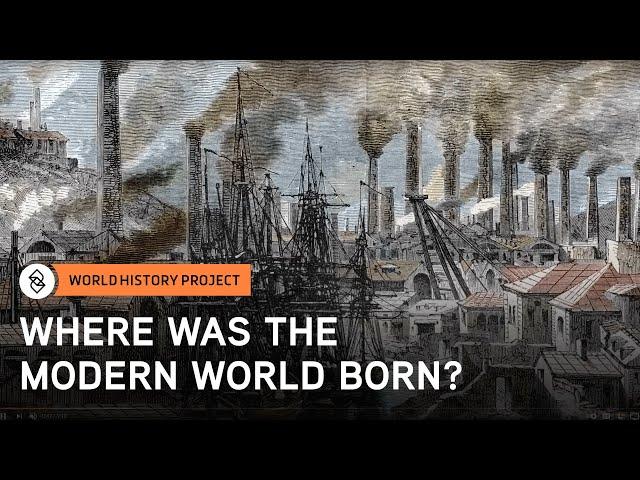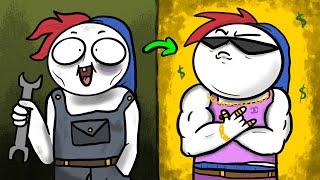
Origins of the Industrial Revolution | World History Project
Комментарии:

INDUSTRIAL REVOLUTION 101
Ответить
GREAT VIDEO AND EDUCATION!!! THANK YOU SO MUCH.
Ответить
THANK YOU SO MUCH. I LOVE LEARNING ABOUT THE INDUSTRIAL REVOLUTION!!!
Ответить
Britain from 1800 to 1900.
20,000 Waterwheels decreased in number.
Windmills decreased in number.
The Englishman Thomas Newcomen's 1,500 Atmospheric Pumps disappeared.
The Scotsman James Watt's 500 Steam Engines and their descendants increased in number to 10,000,000 !!!
So, for every SINGLE Waterwheel in 1800 we now had 500 James Watt Steam Engines and their descendants in 1900 !!!
That's a 500 times increase in total Power Output for the whole country in just one ( possible ) human lifetime!!!
This WAS the Industrial Revolution, it was a Power Revolution.
It only needed one Invention, James Watt's Invention of the world's first PRACTICAL Steam Powered Engine.
It was the only thing that had never existed before.
It had nothing to do with Textiles, Spinning and Weaving, Agricultural Revolutions etc.etc that are all being Preached as the beginning of the Industrial Revolution.

How much did the work houses sell children to the factories and farms for? Making them slaves to the owners of the factories and farms UK was built on white child labour. There was more white slave children working in the factories and farms then there was black slaves.
Ответить
What nonsense. This doesn't discuss the origins at all. You're better off reading about proto-industrialization.
Ответить
It started when James Watt invented the first PRACTICAL Steam Engine in Scotland in the 1760's.
The first new scource of Power since the Water-wheel was invented.
It was a Power Revolution.
Coal, textiles, canals, big business, trade, empires and more have been around for millenia.
Watt's first PRACTICAL Steam Powered engine was the only thing that had never existed before.

Ich mag Großbritannien nicht
Ответить
Thanks, very helpfull for my asignment.
Ответить
is this channel ded
chubby

I hate school
Ответить
Seemingly a good documentary on how the British started the Industrial Revolution. I didn't like the part at the end suggesting that Britain was in part so successful due to slave labour. The British were slave trading with people who were trading their own people for their own personal wealth. Also, pretty much most of Europe was also slave trading with these same slave traders, yet Britain was simply vastly more technological than the rest of Europe/the World.
Ответить







![[FREE] NoCap Type Beat - "Carry My Pain" [FREE] NoCap Type Beat - "Carry My Pain"](https://smotrel.cc/img/upload/NC1rLVFVMlJEclQ.jpg)

















